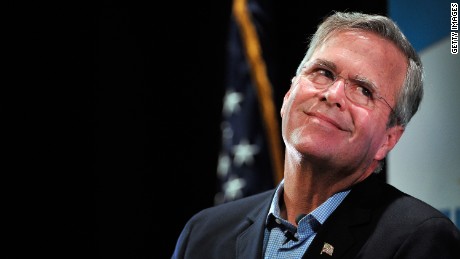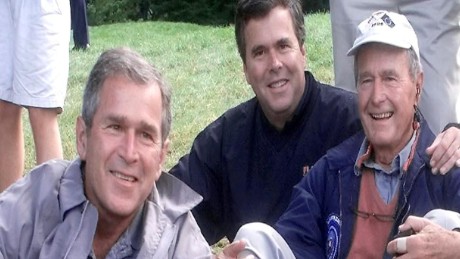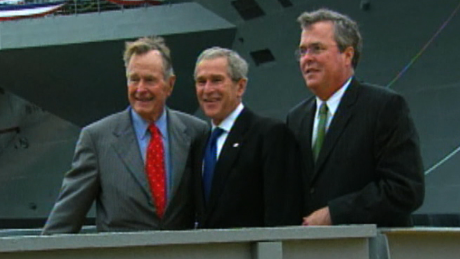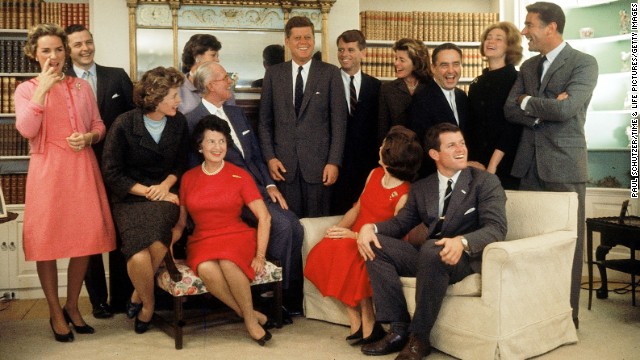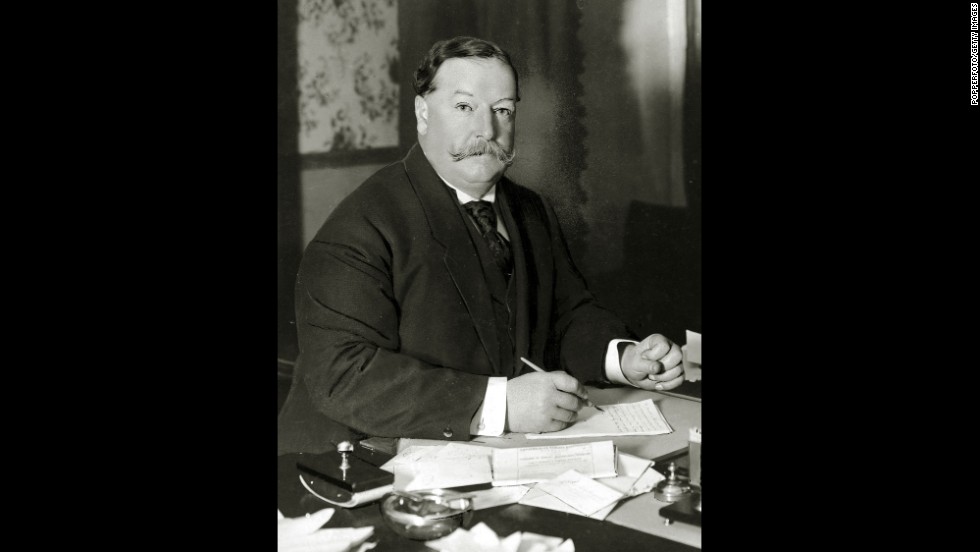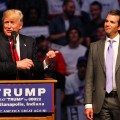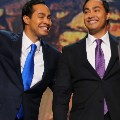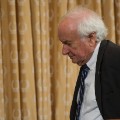Story highlights
- Jeb Bush is suspending his campaign for the Republican nomination
Columbia, South Carolina (CNN)Haunted by his famous last name and perpetually stuck in the shadows of his anti-establishment rivals, Jeb Bush repeatedly confronted rejection by voters and frustrating setbacks throughout the 2016 presidential race.
In South Carolina Saturday night Bush suspended his White House campaign and acknowledged a painful reality: The country was not interested in a third President Bush.
Bush's disappointing finish in the Palmetto State became the final straw for his floundering campaign. The end was all the more personal because the former Florida governor had poured his energy into the state, invoking his family's political legacy at one campaign stop after another and facing down voters who questioned his campaign strategy.
As they zigzagged the state, Bush and his surrogates reminded voters that the Bush clan is popular -- even beloved -- in South Carolina. It gave important primary victories to Bush's father and brother, and George W. Bush remains very popular among Republicans here.
But at his primary night party at a hotel ballroom in Columbia, an emotional Bush acknowledged that there was nothing more he could do.
"The people of Iowa and New Hampshire and South Carolina have spoken and I really respect their decision, so tonight I am suspending my campaign," Bush said, as the audience gasped.
Bush, who turned 63 earlier this month, kicked off his candidacy last June as the front-runner in a crowded field of candidates.
His brand was to be the candidate that Republicans thought they needed after Mitt Romney's 2012 loss: an experienced governor from a swing state who could help expand the GOP base by appealing to Latinos and craft a narrative of a more compassionate GOP. Bush's mantra was to be the "joyful" candidate.
But Donald Trump stood in his way.
Trump's campaign started as an unexpected sideshow in the eyes of many establishment Republicans. The New Yorker labeled undocumented immigrants "rapists" in his announcement speech and boasted that he didn't care to be politically correct.
Trump quickly started to gain traction, and within weeks of Bush's announcement, he had taken the lead and run away with it. His surge revealed a Republican electorate that was more angry than joyful. The intensity of these emotions surprised the Washington political class and upended the GOP presidential race.
Against this backdrop, Bush increasingly appeared to be a misfit. And it didn't help that Bush often seemed uncomfortable on television and on the debate stage.
But at his countless town halls, where Bush was more comfortable and loose, voters routinely walked away surprised at the depth of his knowledge and the energy he showed in person. His campaign briefly hired a media coach, and Bush became more disciplined in his on-camera appearances.
Meanwhile his super PAC, Right to Rise USA, trained most of its fire on rivals like Florida Sen. Marco Rubio, Ohio Gov. John Kaisch and New Jersey Gov. Chris Christie as it became clear that Bush's biggest hope would come in a New Hampshire top-tier finish.
After a poor showing in the Granite State, the former Florida governor knew better than anyone just how much was at stake in South Carolina. The results here will send a powerful signal about who in the GOP field has staying power, as well as the momentum to take on billionaire businessman Donald Trump and Texas Sen. Ted Cruz.
Rubio beat Bush on Saturday, helped by the last-minute endorsement of South Carolina Gov. Nikki Haley.
Former GOP presidential candidate Pat Buchanan, who challenged President George H. W. Bush in the 1992 primaries, said Saturday before the votes came in that a South Carolina rejection of Bush would signal the "end of the Bush dynasty and the end of Bush Republicanism."
"If you add a part of the Cruz vote to the Trump vote, this is a repudiation of everything the Beltway Republican Party has stood for," Buchanan told CNN's Michael Smerconish.
Bush's campaign in the Palmetto State was an all-hands-on-deck family affair.
Former President George W. Bush campaigned for his brother in Greenville on Monday, stepping into the national political spotlight for the first time since leaving the White House in 2009.
In a speech heavy on national security, the 43rd president warned voters that the 2016 campaign was a "serious election for a serious job."
"We do not need someone in the Oval Office who mirrors and inflames our anger and frustration," Bush said, taking a clear swipe at Trump. "We need someone that can fix the problems that cause our anger and frustration, and that's Jeb Bush."
Their mother, Barbara Bush, also hit the stump, coming to South Carolina on Thursday and staying through the vote.
Sen. Lindsey Graham, who endorsed Bush soon after ending his own White House bid, told fellow South Carolinians this week that Jeb Bush was ready to be commander in chief on day one because he had twice had a "front row seat" to the presidency.
But even as Bush tried to capitalize on his brother's popularity here and made a strong appeal to the state's large military and veterans communities, his message frequently deviated from his own record as he took aim at Trump.
The long-running tensions between the two men reached a new climax last weekend when Trump mocked George W. Bush's legacy at a GOP debate. Bush responded with force, saying that while the real estate developer was busy building a reality TV show, his brother had kept the country safe.
"I'm sick and tired of him going after my family," Bush fumed.
Bush continued his assault on Trump in campaign stops across the state this past week, painting his competitor as an inexperienced political newcomer full of bluster and anger and lacking leadership experience.
But it was clear that Bush's public clashes with the boisterous New Yorker made some of his supporters uncomfortable.
When he campaigned at a country club in Summerville this week, of the half-dozen people who took the mic to ask the former governor a question, three directly questioned his strategy.
One Bush backer lamented that the campaign had been "co-opted by the P.T. Barnum of our time" and that Trump was "getting you off your message -- your good message."
Another supporter said it appeared that Bush was getting "knocked off center" by the insults hurled at him and his family, and asked the candidate to "raise the bar" in the campaign discourse.
"Try to be beyond that -- the bullying -- because I think that's who you are," the man told him.
A third person also confronted Bush about his campaign tactics -- but his was a different complaint.
"I love your brother," this man told Bush, as the audience around him broke into applause. "Excuse me for saying this in vernacular terms," he continued, asking Bush to be a "son of a bitch."
Bush appeared amused by the question.
"Will I be an SOB?" he responded. "I will be tough. I will be resolute. I will be firm. I will be clear. I will be determined."
Bush adviser Sally Bradshaw reflected on the end of the campaign Saturday night, telling CNN that 2016 simply "was not his year."
"Look, this was a year that was bigger than a lot of the candidates in this race," Bradshaw said. Bush "didn't equivocate, and he took on Donald Trump and he showed us what is best about our party and what is best about our country."
Visiting a precinct location in Greenville with his mother Saturday morning, Bush acknowledged the effort he and his family put into South Carolina. His mother is 90 years old, he reminded reporters.
"She doesn't have to be doing this," he said.
"My dad talked to her last night and said, 'Where are you Barb?'" Bush added. "So I think he's missing her, so she is going to go back home."







